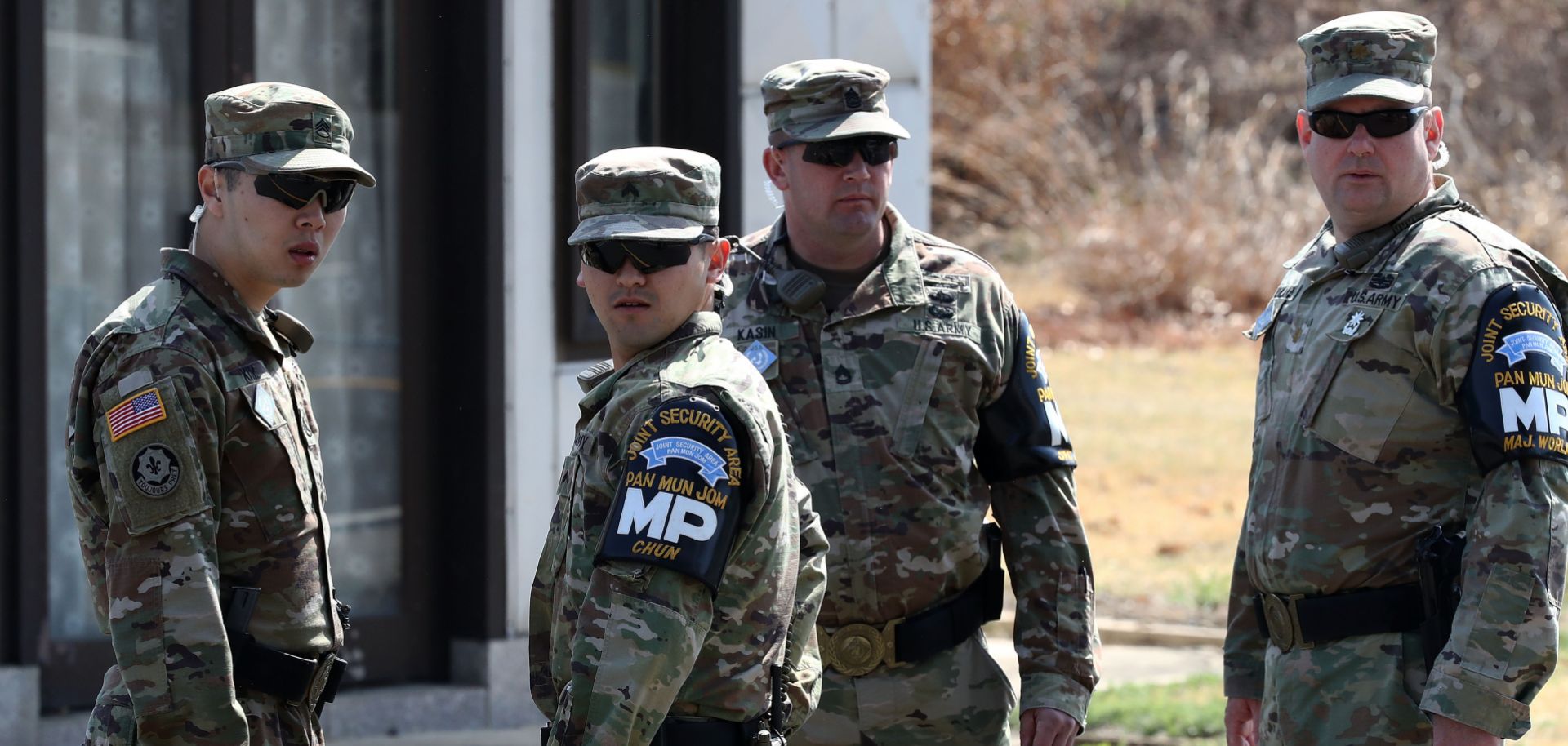ASSESSMENTS
How 3 Key Allies Will Respond to U.S. Demands on Troop Deployments
Nov 22, 2019 | 11:00 GMT

U.S. soldiers stand guard in the Korean border village of Panmunjom, located inside the Demilitarized Zone separating South and North Korea, on April 18, 2018.
(CHUNG SUNG-JUN/Getty Images)
Highlights
- Seoul finds itself in a weak position to resist U.S. demands for more money to base troops in South Korea, but the demands will spur its efforts to reduce its dependence on the U.S. military.
- Japan will try to bargain Washington's asking price down, but its significant wealth and need for close alignment with the United States mean it will reach a deal.
- Germany's relatively secure, by contrast, and the fact that U.S. troops would likely depart for neighboring Poland, and still shield Germany from Russia, means a complete drawdown of U.S. forces is more likely there.
Subscribe Now
SubscribeAlready have an account?
